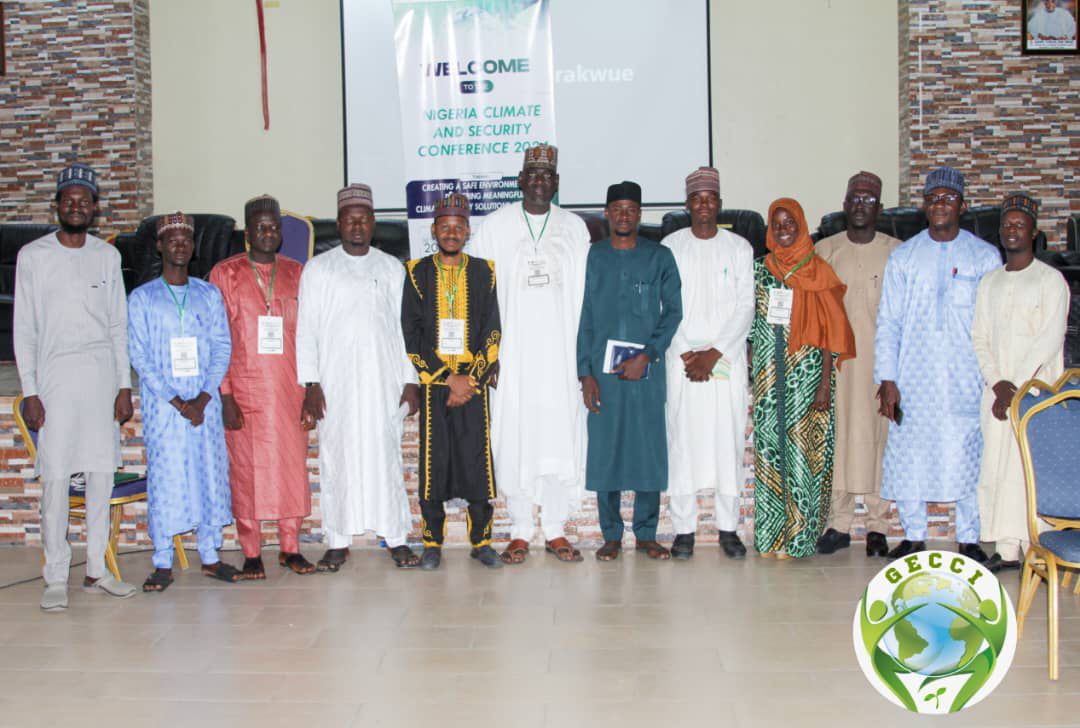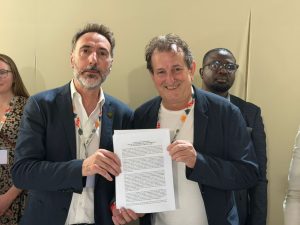1 November, 2024, Maiduguri, Nigeria
Insecurity has been a key challenge in the Sahel region of Africa. This was mostly caused by the impacts of climate change which has led to land degradation and desertification, both of which combined to lead to loss of livelihood means and paucity of arable land. The paucity of arable land has led to forced migration as former inhabitants of the degraded lands began to move further South in search of more arable land. With cattle herders pushing further South for food and water for their cattle, they come in direct contact with crop farmers anxious to protect their crops from the cattle. Consequently, clashes erupt between these two. The loss of livelihood for this mainly land-dependent people has also made it easy for them to be recruited by extremists and deployed as terrorists and bandits against their people.
This scenario has become increasingly dire as climate impacts continue to ravage the Sahel where Nigeria’s Northern States are situated.
Aware of this nexus between climate change and insecurity and how they impact on lives, and the Nigerian economy, the Global Legislators Organisation for a Balanced Environment (GLOBE), Global Environmental and Climate Conservation Initiative (GECCI), in partnership with Prosperity and Peace Pathways Project (University of Greenwich), Youth Climate Council Nigeria (YCCN), and the Abuja Chamber of Commerce and Industry, convened the first edition of the “Nigeria Climate and Security Conference 2024”.

The event sought to explore the interconnection between climate change and seccurity in Nigeria, with the aim of exploring ways to leverage on the connection between both, and draw attention to how addressing climate change can further lead to addressing security and economic issues.
Held at the El Kanemi Hall, University of Maiduguri, Borno State, in the North East of Nigeria on 1st November, 2024, the event brough together a diverse assembly of government officials, international organisations, civil society, and youth leaders, to share insights and experiences on the climate-security nexus.
Strategically covened to take place as the world approaches major global climate events—UNFCCC COP29 in Baku, Azerbaijan, and UNCCD COP16 in Riyadh, Saudi Arabia—the critical role of these stakeholders in advancing the climate and security agenda was highlighted as pioneers of innovative solutions to these problems.
In his opening remarks, co-host of the event and Vice President(Africa) of GLOBE International, Rep Sam Onuigbo stated that the “event holds special importance as it sets the stage for Nigeria’s contributions to the upcoming global climate conferences, including the UNFCCC COP29 in Baku and UNCCD COP16 in Riyadh. These platforms are critical for amplifying our collective voice, showcasing solutions, and holding to account our shared responsibilities. Here in Nigeria, we face a unique confluence of challenges—climate change’s intensifying impacts, a rapidly growing population, and a heightened need for security and resilience, especially in vulnerable regions. This calls for innovative and cooperative action, which each of us here has the power to drive.”
The event further featured key presentations on the following topics: “Creating a Safe Environment for Climate Security” which was delivered by Prof. Irfan Zaheer Khan, University of Maiduguri; “Integrating Peacebuilding in Climate Initiatives” by Prof. Abubakar K. Monguno; “Youth Leadership in Climate Resilience and Peacebuilding” delivered by Prof. Daniel Musa Gwary.
There were also two Panel Discussions viz:
Session 1: Integrating Peacebuilding into Climate Initiatives; Session 2: Youth Leadership in Climate Resilience.
Esteemed virtual guests at the event were: Mr. Ovais Sarmad (Former Deputy Executive Secretary, UNFCCC Secretariat and IOM); Mohammed Azhar Siddique (Advocate, Supreme Court of Pakistan; Legal Adviser to Former PM Imran Khan); Mr. Patrick Worms (President, International Union of Agroforestry)
.
The gathering marked a pivotal moment in Nigeria’s climate conversation as it foregrounded the critical link between climate change and insecurity in Nigeria setting the stage for collaborative actions to address these issues.




